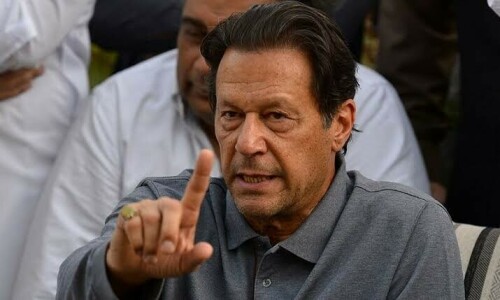WASHINGTON, May 18: The United States is against the proposed Iran-Pakistan-India gas pipeline and that is why it is making efforts to help New Delhi meet its energy needs, says a senior American official.
“We certainly think there are many ways to help India with their energy needs, and we will help with many of those areas,” said Assistant Secretary of State for South and Central Asia Richard Boucher.
Testifying before a congressional panel on the Indo-US nuclear deal, he said the US offer of assistance to India included various options for obtaining energy. “Not only the civil nuclear cooperation; other agreements the president (Bush) has signed during his trip (to India) including clean coal technology, expanding efficiency of power transmission, solar, wind, all of these things,” he said.
Mr Boucher acknowledged that the proposed pipeline was a project ‘that’s been talked about quite a bit in the region’ but said the US had made its concerns known to India and Pakistan.
“We made them aware of US legislation that might affect any investments in Iran, and our concern about Iran as the source of energy need, given the unpredictability … of Iranian behaviour,” he said.
Mr Boucher conceded that there were ‘commercial considerations’ that made the proposed pipeline look attractive to India and but he was not sure if the project could be implemented.
UNSC: Linking India’s candidature to the United Nations Security Council to reforms in the world body, Mr Boucher said the US would consider the issue very carefully before making any decision.
“The issue about India takes place within a broader context of UN reform, where we want to see many aspects of the United Nations reformed and the US priority is to see many of those things done first,” he added.
“We are going to take up the issue of Security Council reform at some point. There’s not really any kind of consensus now. I think our judgment and the best way to approach this is not to have the United States take out a position for particular countries in advance, but rather to maintain certain flexibility as we go in,” he said.
The only country that US had said should be a member was Japan because of high level of its contributions and responsibility it had taken in UN matters, said Mr Boucher.
SOUTH ASIA: Mr Boucher said the US was working on a three-pronged strategy to help the seven countries of South Asia become more free, stable and prosperous.
He said with the exception of India, other nations of the region were facing daunting democratic challenges. “Pakistan has chosen the right course but will need continued support to hold free and fair elections in 2007,” he added.














































Dear visitor, the comments section is undergoing an overhaul and will return soon.